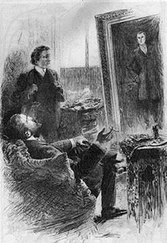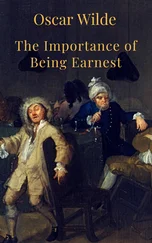My flax on the sod, which was too small to be hurt at the beginning of the drouth, began to need rain, and reports in all daily papers told that the great heat wave and the drouth in many places were worse than in Tipp county. All over the western and northern part of the state, were localities where it had not rained that season. Potatoes, wheat, oats, flax, and corn, in the western part of the state, had not sprouted, and, it was said, in a part of Butte county, where seed had been sown four inches deep the year before, there had not been enough rain since to make it sprout.
The government had spent several million dollars damming the Belle Fourche river for the purpose of irrigation, and the previous autumn, when it had been completed, the water in it had been run onto the land, to see how it would work, and since had been dry. No snow had fallen in the mountains during the winter, and all the rivers were as dry as the roads; while all the way from the gulf, to Canada, the now protracted drouth was burning everything in its wake.
At Kansas City, where the treacherous Kaw empties its waters into the Missouri, and had for years wrought disaster with its notorious floods, drowning out two and sometimes three crops in a single spring, was nearly dry, and the crops were drying up throughout its valley.
I spent the Fourth of July in Victor, where the people shook their heads gravely and said, "Tipp county will never raise a crop." The crops had dried up in Tipp county the year before. I read that the railroad men who run from Kansas City to Dodge City reported that the pastures through Kansas were so dry along the route, that a louse could be seen crawling a half mile away. In parts of Iowa the farmers commenced to put their stock in pens and fed them hay from about the middle of June, there being no feed in the pastures. Through eastern Nebraska, western Iowa and southern Minnesota, the grasshoppers began to appear by the millions, and proceeded to head the small grain. To save it, the farmers cut and fed it to stock, in pens.
The markets were being over-run with thin cattle from the western ranges, where the grass had never started on account of lack of moisture. I watched my flax crop and early in July noticed it beginning to wilt, then millions of army worms began cutting it down. On the eleventh I left for Megory county, with my stock, to harvest the winter wheat there. It had been partially saved by the rain in June. The two hundred and eighty-five acres of flax was a brown, sickly-looking mess, and I was badly discouraged, for outside of my family trouble, I had borrowed my limit at the bank, and the flax seed, breaking, and other expenses, had amounted to eleven hundred dollars.
About this time the settlers all over the western highlands began to desert their claims. Newspapers reported Oklahoma burned to a crisp, and Kansas scorched, from Kansas City to the Colorado line. Homesteaders to the north and west of us began passing through the county, and their appearance presented a contrast to that of a few years before. Fine horses that marched bravely to the land of promise, drawing a prairie schooner, were returning east with heads hanging low from long, stringy necks, while their alkalied hoofs beat a slow tattoo, as they wearily dragged along, drawing, in many cases, a dilapidated wagon over which was stretched a tattered tarpaulin; while others drew rickety hacks or spring wagons, with dirty bedding and filthy looking utensils. These people had not made a dollar in the two years spent on their homesteads. At Pierre, it was said, seven hundred crossed the the Missouri in a single day, headed east; while in the settlements they had left, the few remaining settlers went from one truck patch to another, digging up the potatoes that had been planted in the spring, for food.
One day I crossed the White river and went to visit the Wisenbergers, who lived seventeen miles to the north. On the way, out of forty-seven houses I passed, only one had an occupant. The land in that county is underlaid with a hardpan about four inches from the surface, and had not raised a crop for two years. The settlers had left the country to keep from starving. As I drove along the dusty road and gazed into the empty houses through the front doors that banged to and fro with a monotonous tone, from the force of the hot south winds, I felt lonely and faraway; the only living thing in sight being an occasional dog that had not left with his master, or had returned, but on seeing me, ran, with tucked tail, like a frightened coyote.
Merchants were being pressed by the wholesale houses. The recent years had been prosperous, and it is said prosperity breeds contempt and recklessness. The townspeople and many farmers had indulged lavishly in chug-chug cars. Bankers and wholesale houses, who had always criticised so much automobilism, were now making some wish they had never heard the exhaust of a motor. In addition to this the speculators were loaded to the guards, with lands carrying as heavy mortgage as could be had—which was large—for prosperity had caused loan companies to increase the amount of their loans. No one wanted to buy. Every one wanted to sell. The echo of the drouth seventeen years before and the disaster which followed, rang through the country and had the effect of causing prices to slump from five to fifteen dollars per acre less than a year before.
Now what made it worse for Tipp county was, that it had been opened when prosperity was at its zenith. The people were money mad. Reckless from the prosperity which had caused them to dispense with caution and good judgment, they were brought suddenly to a realization of a changed condition. The new settlers, all from eastern points, came into Tipp county, seeing Tipp county claims worth, not six dollars per acre, the price charged by the Government, but finding ready sales at prices ranging from twenty-five to forty-five dollars, and even fifty dollars per acre. They had spent money accordingly. And now, when the parched fields frowned, and old Jupiter Pluvius refused to speak, the community faced a genuine panic.
* * * * *
Came a day, sultry and stifling with excessive heat, when I drove back to the claims. Everywhere along the way were visible the effects of the drouth. Vegetation had withered, and the trails gave forth clouds of dust.
Late in the afternoon clouds appeared in the northwest and the earth trembled with the resounding peals of thunder. The lightning played dangerously near, and then, like the artillery of a mighty battle, the storm broke loose and the rain fell in torrents, filling the draws and ravines, and overflowing the creeks, which ran for days after. All over the north country the drouth was broken and plant life began anew.
My wheat threshed about eight hundred bushels, and when marketed, the money received was not sufficient to pay current expenses. Therefore, I could not afford the outlay of another trip to Chicago, but wrote many letters to Orlean, imploring her to return, but all in vain.
During the summer I had received many letters from people in Chicago and southern Illinois, denouncing the action of the Elder, in preventing my wife from returning home. The contents of these letters referred to the matter as an infamous outrage, and sympathized with me, by hoping my wife would have courage to stand up for the right. I rather anticipated, that with so much criticism of his action by the people belonging to the churches in his circuit, he would relent and let her return home; but he remained obstinate, the months continued to roll by, and my wife stayed on.
I had not written her concerning the drouth, which had so badly impaired crops. I knew her people read all the letters she received, and felt that with the knowledge in their possession that my crop had been cut short, along with the rest, would not help my standing. They would be sure to say to her, "I told you so." The last letter that I received from my wife, that year, was written early in the fall, in answer to a letter that I wrote her, and in which I had sent her some money, with which to buy some things for my grandmother. When Orlean had been in Dakota, she had been very fond of my grandmother, and had asked about her in every letter, whether the letter was kind or abusive, as regarded me. My wife's letter, stated that she had received the money, and thanked me also stated that she would get the things for "Grandma" that day. Neither grandmother or I received the things.
Читать дальше












